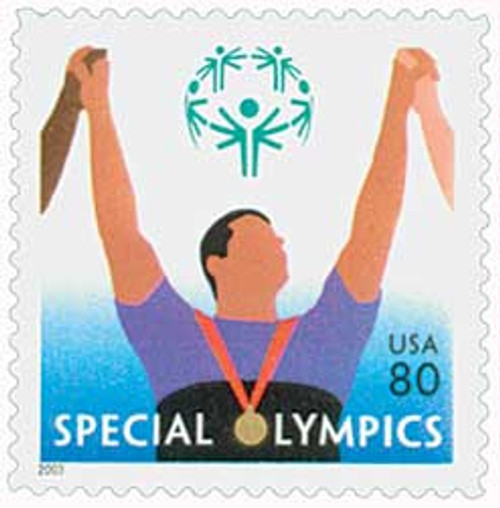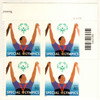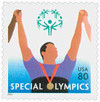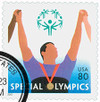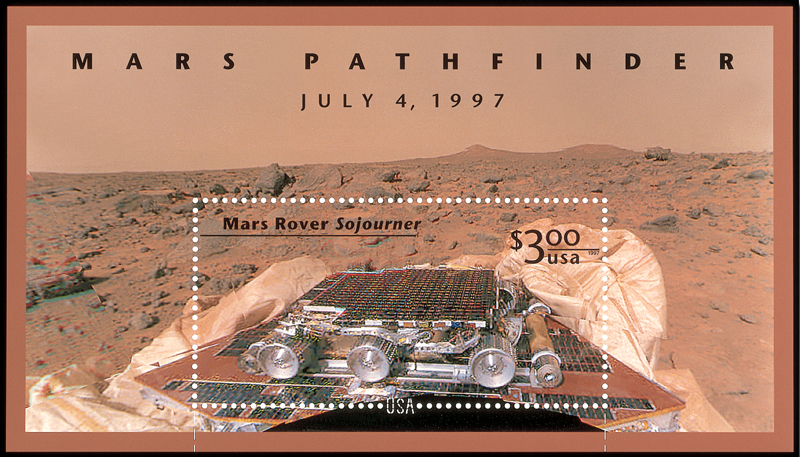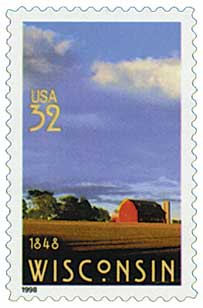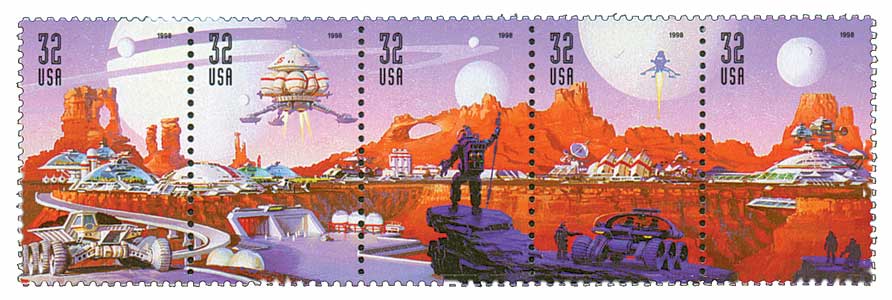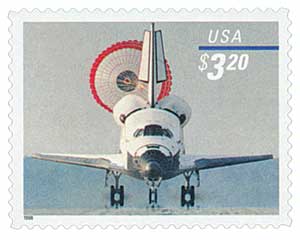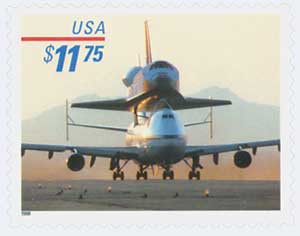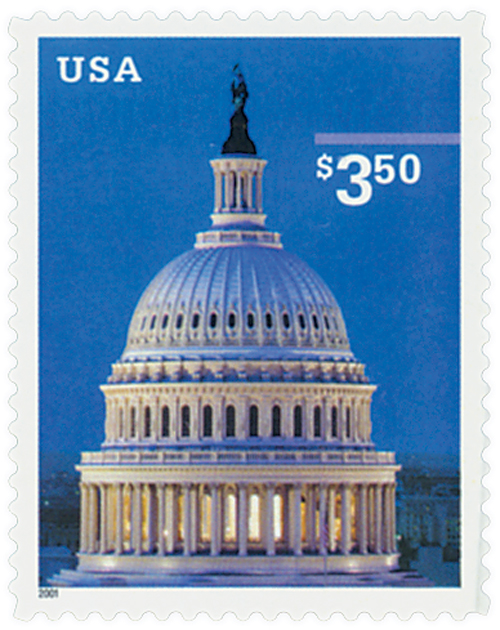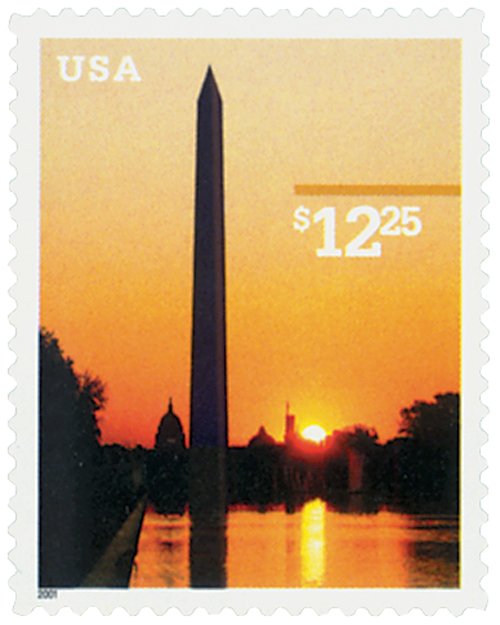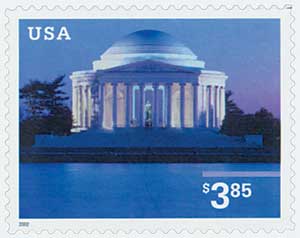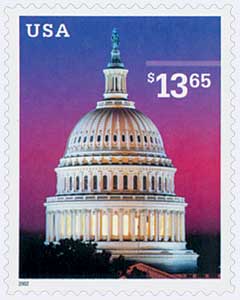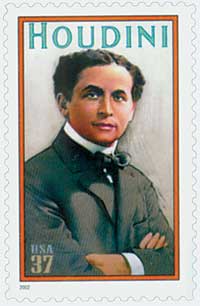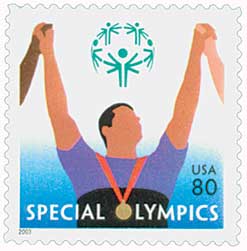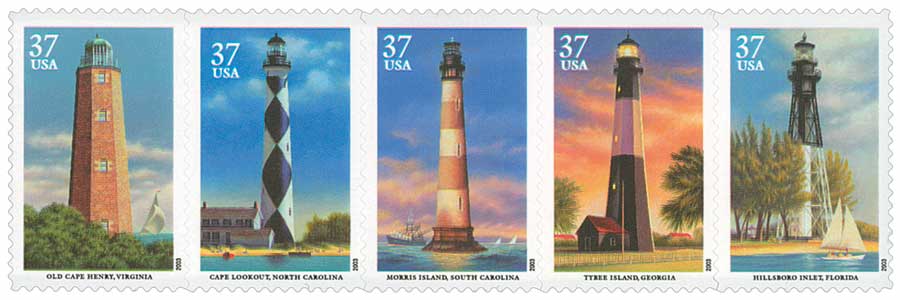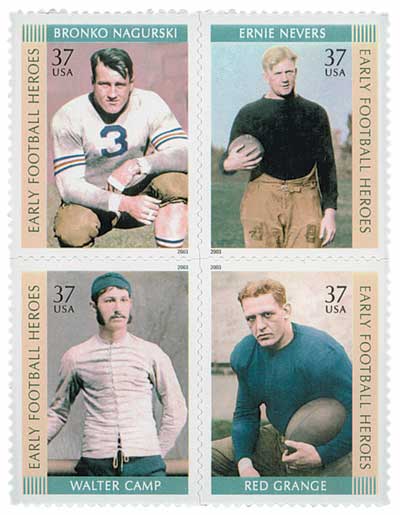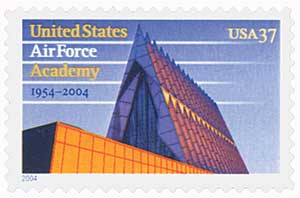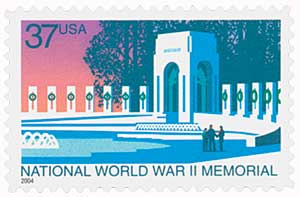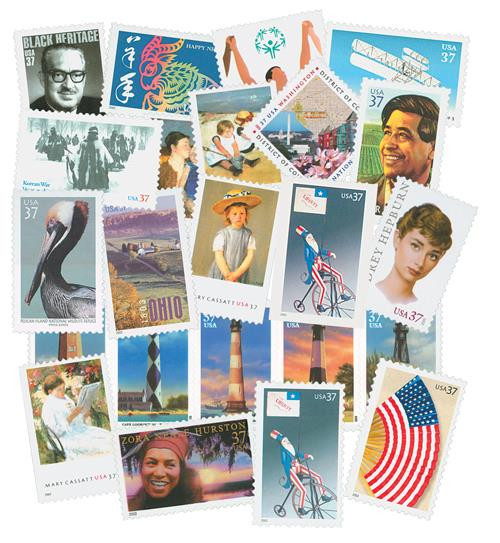
# 3771 - 2003 80c Special Olympics
80¢ Special Olympics
City: Chicago, Illinois
Quantity: 60,000,000
Printed By: Avery Dennison Security Printing
Printing Method: Photogravure
Perforations: Serpentine Die Cut 11
Color: Multicolor
First U.S. Stamp With Scrambled Indicia
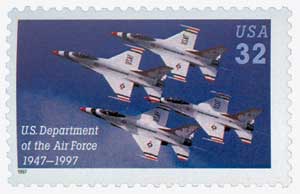
On September 18, 1997, the USPS issued the U.S. Air Force stamp, the first U.S. stamp to have a hidden image using Scrambled Indicia.
Over the years, the USPS had always sought ways to combat counterfeiting, with grills being one of the earliest examples. As technologies changed, they found new, more advanced ways to do this, including microprinting and tagging. Then in 1997, they introduced Scrambled Indicia.
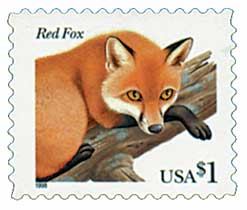
Scrambled Indicia is a pre-press process invented by Graphic Security Systems Corporation. According to the company, it “scrambles, distorts, intertwines, overlaps, or otherwise manipulates images making encoded information on them unreadable by the naked eye, and non-copyable by current color copiers and digital scanners.” These images could then be viewed using a special decoder. In addition to thwarting counterfeiting, the USPS also hoped this interesting new technology could help arouse interest among collectors and inspire new ones.
Between 1997 and 2004 the USPS produced more than 40 stamps with Scrambled Indicia:
Click here to get your own decoder to see these neat hidden images in person.
80¢ Special Olympics
City: Chicago, Illinois
Quantity: 60,000,000
Printed By: Avery Dennison Security Printing
Printing Method: Photogravure
Perforations: Serpentine Die Cut 11
Color: Multicolor
First U.S. Stamp With Scrambled Indicia

On September 18, 1997, the USPS issued the U.S. Air Force stamp, the first U.S. stamp to have a hidden image using Scrambled Indicia.
Over the years, the USPS had always sought ways to combat counterfeiting, with grills being one of the earliest examples. As technologies changed, they found new, more advanced ways to do this, including microprinting and tagging. Then in 1997, they introduced Scrambled Indicia.

Scrambled Indicia is a pre-press process invented by Graphic Security Systems Corporation. According to the company, it “scrambles, distorts, intertwines, overlaps, or otherwise manipulates images making encoded information on them unreadable by the naked eye, and non-copyable by current color copiers and digital scanners.” These images could then be viewed using a special decoder. In addition to thwarting counterfeiting, the USPS also hoped this interesting new technology could help arouse interest among collectors and inspire new ones.
Between 1997 and 2004 the USPS produced more than 40 stamps with Scrambled Indicia:
Click here to get your own decoder to see these neat hidden images in person.

